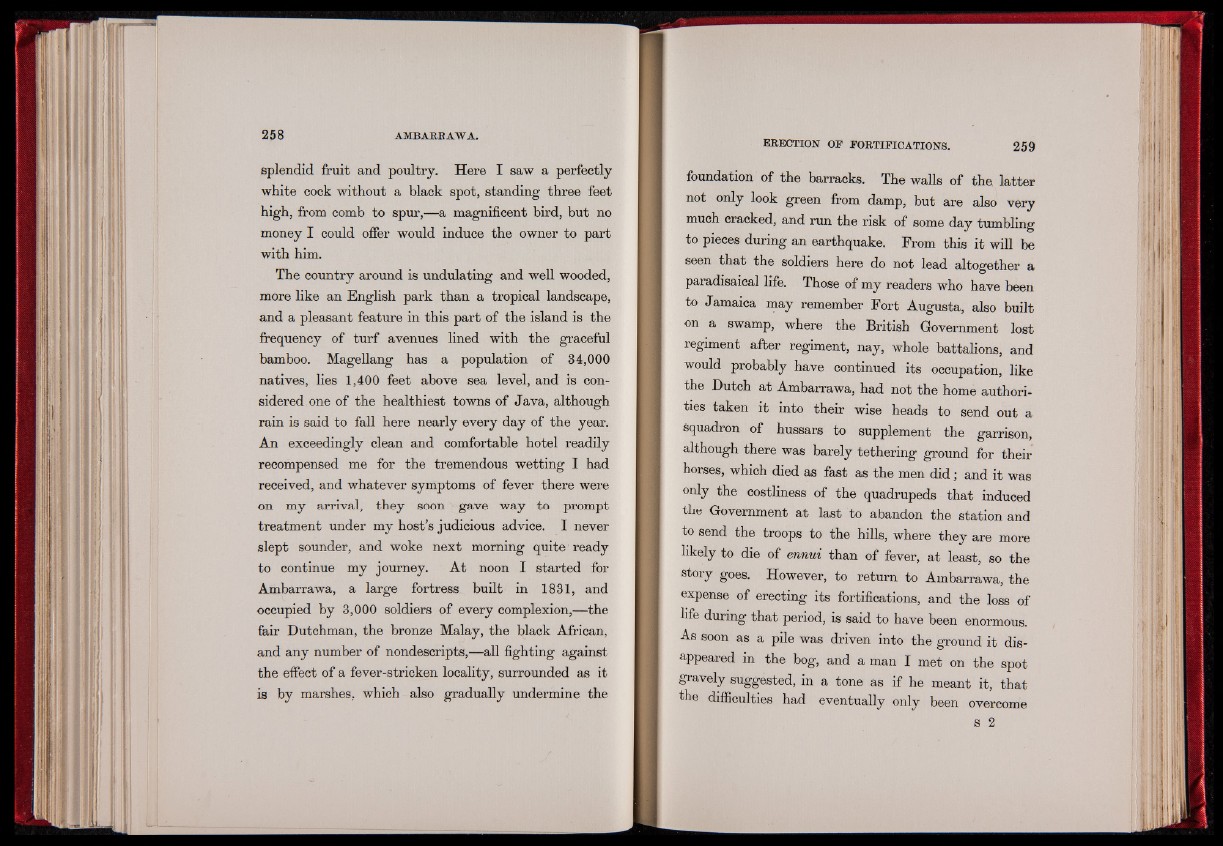
splendid fruit and poultry. Here I saw a perfectly
white cock without a black spot, standing three feet
high, from comb to spur,—a magnificent bird, but no
money I could offer would induce the owner to part
with him.
The country around is undulating and well wooded,
more like an English park than a tropical landscape,
and a pleasant feature in this part of the island is the
frequency of turf avenues lined with the graceful
bamboo. Magellang has a population of 34,000
natives, lies 1,400 feet above sea level, and is considered
one of the healthiest towns of Java, although
rain is said to fall here nearly every day of the year.
An exceedingly clean and comfortable hotel readily
recompensed me for the tremendous wetting I had
received, and whatever symptoms of fever there were
on my arrival, they soon gave way to prompt
treatment under my host’s judicious advice. I never
slept sounder, and woke next morning quite ready
to continue my journey. At noon I started for
Ambarrawa, a large fortress built in 1831, and
occupied by 3,000 soldiers of every complexion,—the
fair Dutchman, the bronze Malay, the black African,
and any number of nondescripts,—all fighting against
the effect of a fever-stricken locality, surrounded as it
is by marshes, which also gradually undermine the
foundation of the barracks. The walls of the latter
not only look green from damp, but are also very
much cracked, and run the risk of some day tumbling
to pieces during an earthquake. From this it will be
seen that the soldiers here do not lead altogether a
paradisaical life. Those of my readers who have been
to Jamaica may remember Fort Augusta, also built
on a swamp, where the British Government lost
regiment after regiment, nay, whole battalions, and
would probably have continued its occupation, like
the Dutch at Ambarrawa, had not the home authorities
taken it into their wise heads to send out a
squadron of hussars to supplement the garrison,
although there was barely tethering ground for their
horses, which died as fast as the men did | and it was
only the costliness of the quadrupeds that induced
the Government at last to abandon the station and
to send the troops to the hills, where they are more
likely to die of ennui than of fever, at least, so the
story goes. However, to return to Ambarrawa, the
expense of erecting its fortifications, and the loss of
life during that period, is said to have been enormous.
As soon as a pile was driven into the ground it disappeared
in the bog, and a man I met on the spot
gravely suggested, in a tone as if he meant it, that
the difficulties had eventually only been overcome
s 2